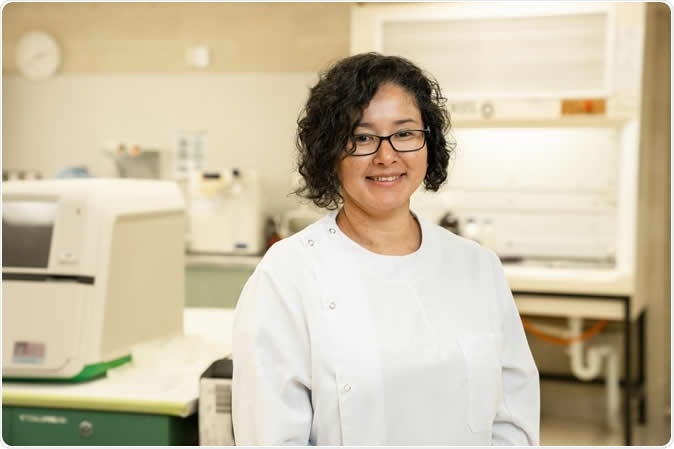A new method to detect melanoma cancer cells circulating in the blood may be the key to detecting deadly cancer early and saving lives, a new study says.

Lead researcher from Edith Cowan University, Associate Professor Elin Gray. Image Credit: Edith Cowan University
The new technique, which was described in the paper published in the British Journal of Cancer, was based on the previous work of scientists belonging to the Melanoma Research Group, who developed the world’s first blood test for melanoma, which hastened its diagnosis, providing early treatment and improving health outcomes.
Melanoma is a rare type of skin cancer, but it’s the deadliest with an expected 100,350 new melanoma cases to be diagnosed in 2020, increasing by 2 percent, with an estimated 6,850 deaths. Over the years, the rates of melanoma have been increasing rapidly, the Americana Cancer Society reports.
"These preliminary findings are the first step towards a new way to stop melanoma from spreading around the body," Associate Professor Elin Gray, study’s lead researcher, said.
"Cancer spreads around the body when CTCs shed from the primary tumor and travel through the blood to form secondary tumors (metastases) in other organs. If we can find a way to reliably detect these cells, then we have a chance to stop melanoma in its tracks with a powerful diagnostic tool and perhaps opportunities for therapies in the future,” he added.
Early detection, early treatment
Just like any other type of cancer, early detection and diagnosis are the keys to improving a patient’s health outcome or prognosis. If the cancer is detected at its early stages, it’s easier to treat. But, for cancers that have metastasized in other parts of the body, particularly vital organs, it’s harder to treat.
Melanoma CTCs have been very elusive and hard to detect. Detecting these circulating cancer cells may vary between 40 and 87 percent, making diagnosis harder than expected. The researchers believe that CTCs have many differences, especially when it comes to their bioactivity and shape. Hence, these cancer cells may respond to assays differently.
What’s more, these CTCs tend to hide among thousands of other cells, particularly in the blood. In fact, in one milliliter of blood, there are less than ten cancer cells among billions of red blood cells and white blood cells. Detecting these cancer cells is akin to finding a needle in a haystack.
New approach shows promise
Thanks to the work of scientists, they developed a new way to detect melanoma CTCs in the blood, providing a faster and more accurate way of diagnosing skin cancer. They studied the complexity of finding CTCs in the blood and decided they can’t use a one-size-fits-all approach.
The team combined three assays together, boosting the rates of detection to a staggering 72 percent. The rate is higher than using just one test.
“Our analysis revealed an extraordinary heterogeneity amongst melanoma CTCs, with multiple non-overlapping subpopulations. CTC detection using our multimarker approach was associated with shorter overall and progression-free survival. Finally, we found that CTC scores correlated with plasma ctDNA concentrations and had similar pharmacodynamic changes upon treatment initiation,” the team concluded in the study.
The team believes that the new approach will pave the way to develop reliable detection of CTCs. However, they want to further polish their diagnostic test to capture the broadest range of CTCs. Detecting these cancer cells early can improve survival rates and may lead to a better quality of life.
Journal reference:
Aya-Bonilla, C.A., Morici, M., Hong, X. et al. Detection and prognostic role of heterogeneous populations of melanoma circulating tumour cells. Br J Cancer (2020). https://doi.org/10.1038/s41416-020-0750-9